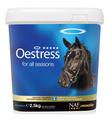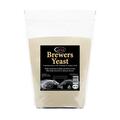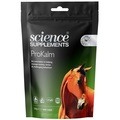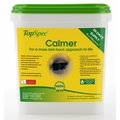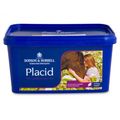Horse ownership often necessitates travelling, which can be stressful at the best of times, and traumatic and even dangerous at the worst. To help ensure you are always travelling safely with your horses, here are our top tips for keeping journeys stress-free:
- Get your horse used to being loaded, as this is often the most stressful part of the journey. Practice loading before you travel, particularly if your horse is young or inexperienced.
- Use protective bandages or travel boots to protect your horse’s legs during travel. Many horses kick the sides of the box, which can result in injuries. Again, get your horse used to wearing these before you travel, as something foreign on the legs will only add to your horse’s stress.
- Don’t over-rug your horse, as this will lead to overheating and subsequent stress. It’s better that your horse is too cool than too warm.
- Ensure that you have enough hay and water to last the journey and plan frequent breaks to allow your horse to stretch its legs and lower its head. Try to do this every 3 hours to reduce the risk of shipping fever and pneumonia.

- Try to make sure there is adequate ventilation in the trailer and avoid dusty hay and bedding.
- If you have to make a long journey, consider travelling the day before so your horse can have more breaks and rest overnight.
- Drive as smoothly and sensibly as you can, as your horse will be trying to maintain its balance in the back. Long journeys with many twists and turns will tire your horse quickly and make injuries more likely.
- Take out rescue cover on your vehicle and make sure it includes cover for horses.
- Make sure you plan for all eventualities and have enough headcollars, lead ropes and other items for all the horses you are transporting. Pack calmers for use on the day, and feed a calming supplement in the lead-up to the planned travel.
- Aim to keep your horse’s routine and management as normal as possible (beside the travelling) – feed at the same time and in the same way, use your own hay, and positively reinforce cooperative behaviour e.g. with a tasty carrot or praise.
Written by: Adam

